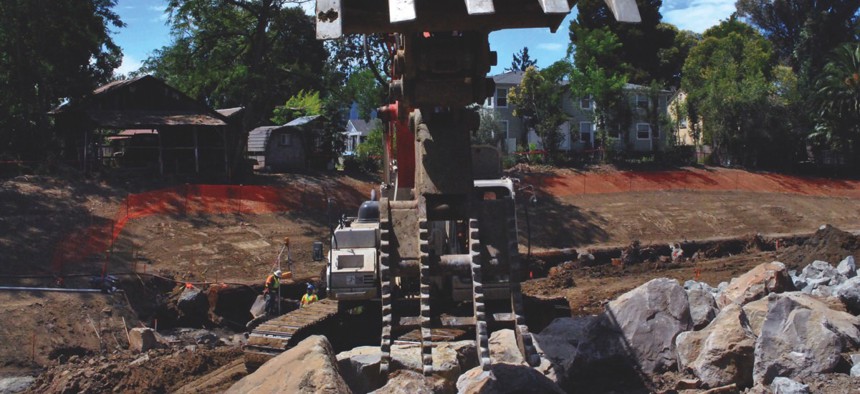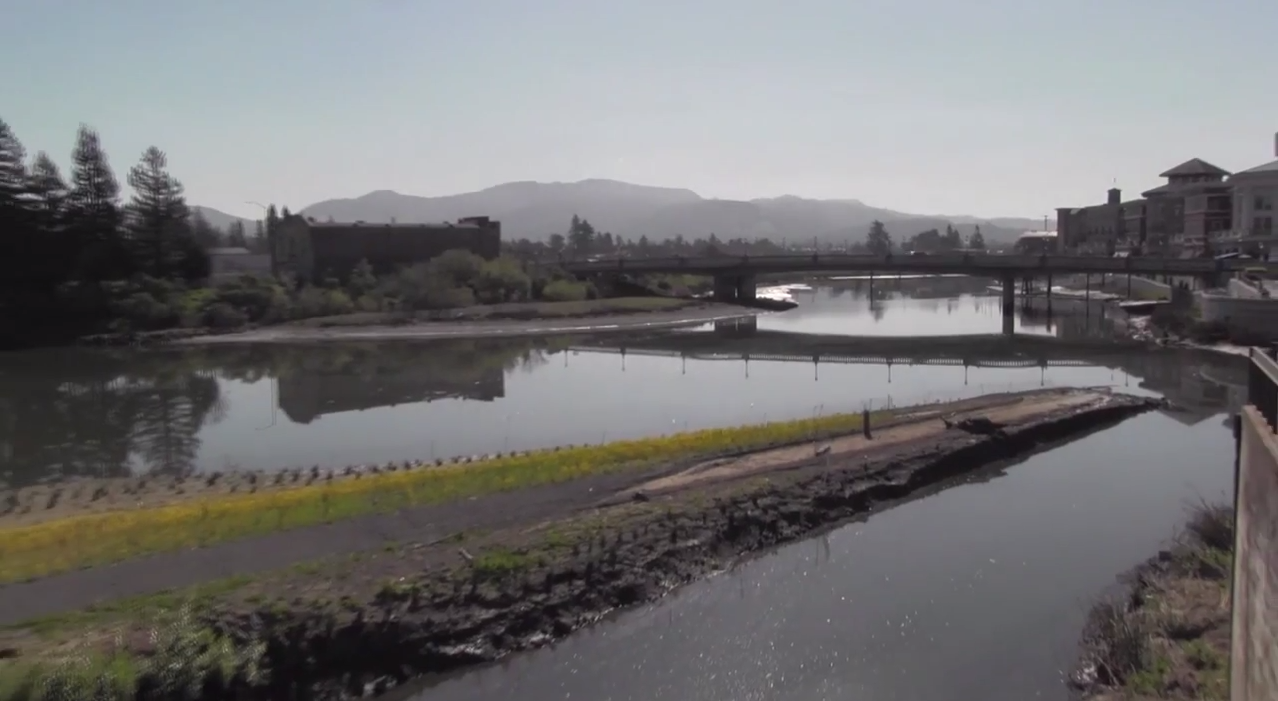What Local Governments Can Learn from Napa County’s ‘Living River’

J.C. Delgadillo / U.S. Army Corps of Engineers
Modern multi-agency, multi-benefit flood control projects combat drought and are better for the environment.
Known for fine wines and flooding, Napa County hopes to narrow that list to just wines with modernized, environmentally-friendly flood management.
Since the 1860s, 22 serious floods hit the city of Napa, including one in 1986 that destroyed approximately 250 residences, damaging around 2,500 more and requiring about 500 relocations.
Today the Napa County is around 75 percent finished implementing its “innovative flood control” plan, according to the California State Association of Counties, a series of projects intended to reduce flooding and restore the natural habitat of the Napa River, one of the last undammed rivers in California.
“Napa County and its citizens are very environmentally oriented. We managed to talk the [Army Corps of Engineers] into using a much more nature-friendly approach,” said Phillip Miller, Flood Control District engineer, in a recent CSAC video about the endeavor.

“The erosion control, rather than being concrete, is native vegetation instead, and that just really sold it to the community.”
Coined the “Living River,” the project series was so well liked it supplanted the Corps’ original plan to run a concrete ditch through the area, and residents voted to increase their sales tax to fund the effort along with state and federal grants.
Community groups, businesses, environmental and resource agencies, government departments, and citizens have all cooperated to make the Living River a success.
“This project, in the 15 years I’ve been involved with it, has had extraordinary little controversy,” said Richard Thomasser, watershed and flood control operations manager, in the video.
Napa has seen an estimated $1 billion in private investment since work on the Living River began, which keeps the wine flowing, and new wetlands have been created benefitting wildlife and fisheries.
The last phase is work on a bypass to shortcut the nearby bend in the Napa River, much like what would happen if the river naturally flooded. Trails and other amenities are being added to what will become a city park.
Sacramento has similar flood control considerations on its hands because its levees don’t meet new safety standards set by the state.
“If improvements are not made and the levees remain uncertified, then [Federal Emergency Management Agency] would ultimately remap several areas in Sacramento into a ‘high-hazard’ zone,” Jay Davis, Sacramento Area Flood Control Agency consultant, told The California Aggie.
“This would make high-rate flood insurance mandatory for most property owners, and it would impose strict federal building restrictions, severely limiting any future development.”
SAFCA is proposing constructing cutoff walls first to prevent water seeping under levees, lining the levees with rocks and planting vegetation on top to reduce erosion, and doubling the size of the Sacramento Bypass to relieve pressure when water levels get high.
While widening the bypass is a sound multi-benefit flood management project that allows high water to spread onto the adjacent floodplain, “armoring” levees is a traditional means of flood control that fails to enhance water supply amid California’s drought.
“These 19th century-inspired projects are not only bad for the environment, but in too many cases they actually increase flood risk and degrade water quality by encouraging development in floodplains,” write contributors John Cain and Chris Unkel in a recent Sacramento Bee editorial.
“They also starve salmon and other fish that once grew big on the river’s natural floodplain.”
The directors of conservation with American Rivers instead advocate the $660 million Gov. Jerry Brown recently allocated to flood management should be spent on projects moving levees back to create habitat and recreational opportunities.
Widening floodplains, as in Napa County, is a move away from California’s Gold Rush-era levee system that replenishes underground aquifers and increases reservoir water storage to combat the state’s drought.
NEXT STORY: Hitachi launches software-defined infrastructure solutions






